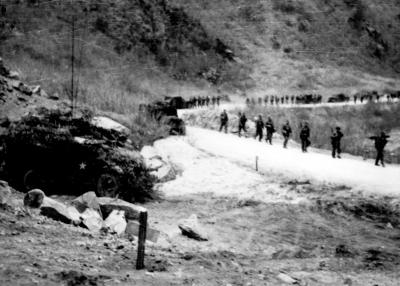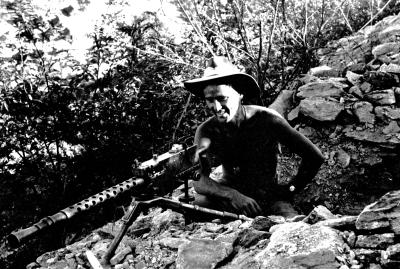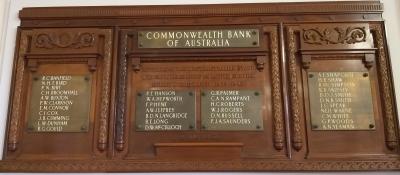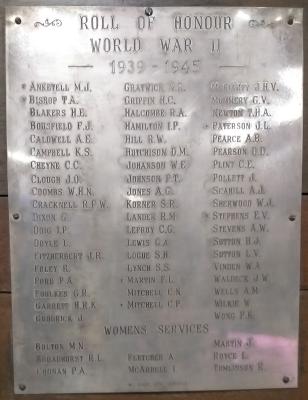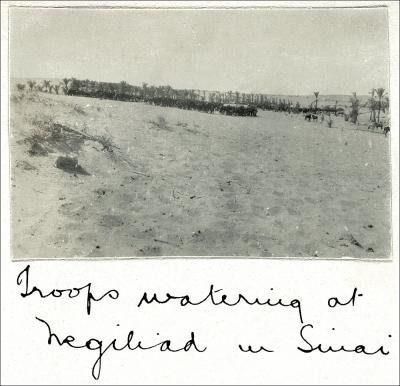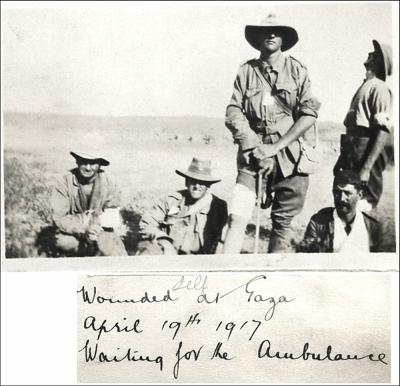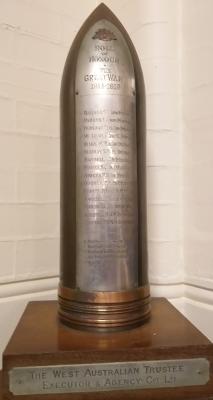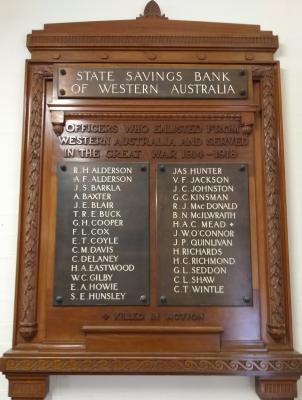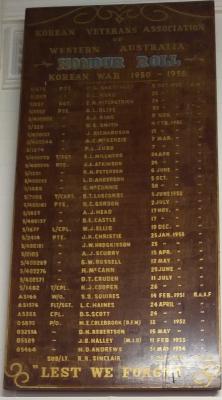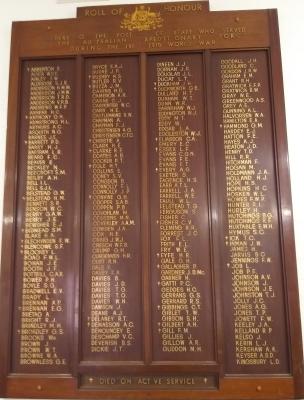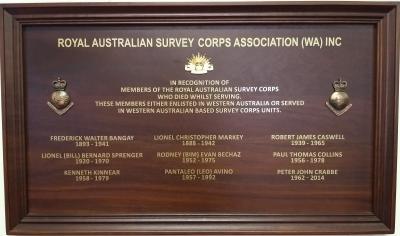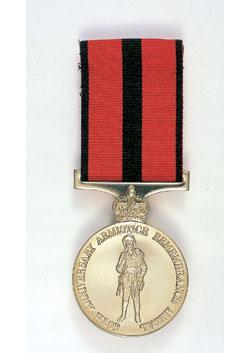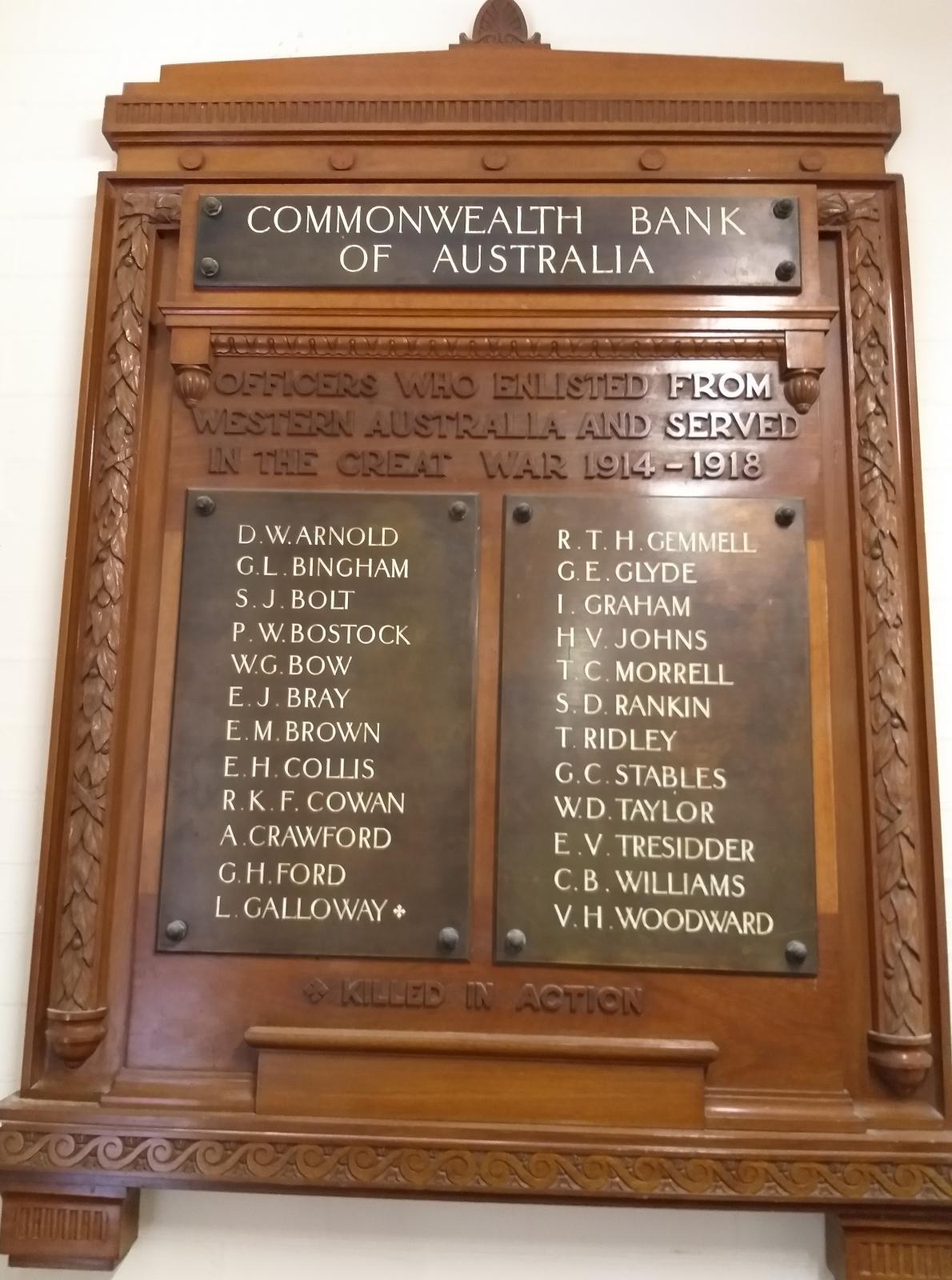Honour Board - Commonwealth Bank (World War 1)
Large jarrah Honour Roll with carved details and bronze tablets recording bank officers from Western Australia who enlisted to serve during World War 1 with one recorded death.
Soon after the Commonwealth Bank of Australia opened in 1912, it was called upon to perform a vital role as the nation’s central bank. During the years of World War I (1914–18), the Bank was required to manage the raising of funds for the war effort, and to ensure the payment of service people in foreign countries, among other duties. By the end of World War One, 206 CBA men had been given military leave from their jobs to serve in the armed forces. Around 35 staff also resigned to sign up. Given that the Bank had only been operating for two years and employed just 228 men and women when the conflict started, the final CBA contingent was more than significant: the eventual tally equalled the 1914 total staff numbers and represented nearly 20 per cent of the workforce at the war’s end.
Details
Details
A consolidated list of names recorded on Honour Boards in the Museum's care is available through the Curatorial section.
Australian Army Museum of Western Australia
Australian Army Museum of Western Australia
Other items from Australian Army Museum of Western Australia
- Post 1945, North East Asia, Korea, 2 Royal Australian Regiment 1953-54
- Post 1945, North East Asia, Korea, 1953
- Honour Board - Commonwealth Bank (World War 2)
- Honour Board West Australia Trustee Executor and Agency Company Limited (World War 2)
- World War 1, South-West Asia, Sinai, Negiliad, 10 Light Horse, 1917
- World War 1, South-West Asia, Sinai, Gaza, 10 Light Horse, 1917
- Honour Board - West Australia Trustee Executor and Agency Company Limited (World War 1)
- Honour Board - State Savings Bank (World War 1)
- Post 1945, Honour Board - Korean Veterans
- Honour Boards - Post Office Staff (World War 1)
- Honour Board - Royal Australian Survey Corps
- Medal - 80th Anniversary Armistice Remembrance Medal
